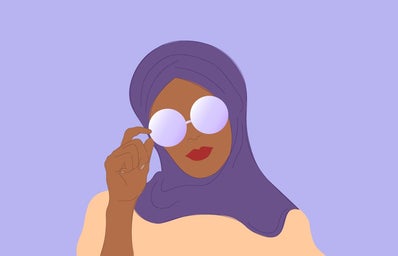This semester, I decided to take a class called American Muslim Literature with Professor Zaid Adhami here at Williams College. There are multiple reasons I decided to take this class. The first and most superficial reason is that, even though I am a Biology major, I am a sucker for a good English class. If it’s a class where I can read several books by new authors I haven’t read before (and if I don’t have to use my science-y brain), I’m in. Secondly, American Muslim literature is a realm of literature that I haven’t been exposed to. Be honest with yourself: how many books have you read that have been written by a Muslim American? Probably one or two at most. Lastly, I’m a New Yorker, and if you don’t understand why that matters, then you should know that New York City has a large Muslim community made up primarily of South Asian and Southeast Asian immigrants. In fact, a lot of the Muslim population in New York City live in Queens, which is where I was born and raised. I have always wanted to learn more about the people who practice Islam here in the United States, especially since their religion has been attacked time and time again through racism and stereotypes perpetuated by the Western media. My best friend from back home is a practicing Muslim with roots in Bangladesh, but it would be unfair to expect her to educate me about Islam. That’s why I decided to educate myself with this class, and so far I feel like I have learned a lot about the cultural traditions surrounding the Muslim community that I am familiar with.
However, I think my professor decided to throw a wrench into our class’s reading schedule by suggesting a book written by author G. Willow Wilson: The Butterfly Mosque. The Butterfly Mosque defies what one might expect from American Muslim literature: a white Muslim convert who was raised in a liberal, atheist household moves to Egypt, converts to Islam, and falls in love with an handsome Egyptian man along the way. On the surface, the book does not sound too problematic; it is just very different from the typical Muslim American narrative. That being said, I think I (and several other people in my class) have quite the bone to pick with this book and how it portrays cultural differences.
The first thing I want to say is that there is nothing wrong with cultural shock. Even when I go visit family back in the Dominican Republic, there are times where I’m like, “Wait, you can do that here?” Cultural norms are different across countries, and no one is denying that. The issue is exaggerating those differences and continuing to make another culture into this “other” relative to your own culture. There are several points throughout the novel where Wilson claims there was no way to bridge the gap between her culture and her Egyptian husband’s culture. In regards to the potential intersection of the two cultures, Wilson literally says that there was “violently, utterly nothing.” Keep in mind the setting she is writing about is early 2000s Egypt, in which a large group of people, including her husband and his family, had been Westernized to some degree. Overall, it is not hard to see Wilson’s statement as an exaggeration, and it is also dangerous given that Wilson is a white, middle-class woman whose novel is really targeted towards people of that same background. I find it brutally ironic that Wilson calls an Arab writer writing about the Arabic world an Orientalist while she herself perpetuates the imaginary, gigantic gap between the East and the West that is the foundation of the “Orientalist” way of thinking.
I am not going to argue with someone who believes Wilson’s memoir should be considered American Muslim literature. She is American and she is Muslim, and her work should be valued for speaking on behalf of that experience. What I will argue, however, is that The Butterfly Mosque is a piece of American Muslim literature that should be read keeping in mind Wilson’s privilege and inclination towards hyperbole that may negatively impact the intended audience’s perception of Egypt and its cultural norms.


